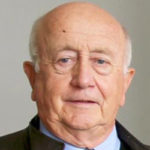As Tony Abbott’s first time to South Korea (ROK) as Prime Minister this visit carries much more importance than the mercantilist hype in which it has been cloaked. It will certainly will be seen through a much larger prism by his hosts – and their brothers across the border. The Korean peninsular is of fundamental strategic importance to Australia as the only place in the world where the national interests of the all major powers intersect and the potential for conflict remains so high. The mozaic of all these interests is extremely complex, demanding close and continuing interest of the highest order and very sensitive management on our part – as the Prime Minister and his team should have learned from the instant and robust reaction not only from China but also the ROK to his incautious remarks about Japan being Australia’s best friend in the region. This visit offers him the opportunity to appreciate this kaleidoscope of challenges at first hand.
Both Japan and the ROK are alliance partners of the US but they often sing from very different hymn sheets – usually to the chagrin of the US as witnessed by President Obama’s very public efforts at the recent summit in The Netherlands to initiate and chair the first face to face meeting between Prime Minister Abe and President Park. Likewise, on many issues the ROK is more comfortable with China than it is with Japan. As their country has been a battlefield for centuries between China and Japan, Koreans have learned more about managing relations with both than any other country and have much wisdom to offer at a time when the rest of the world is beginning to focus on the looming strategic shifts in the region
North Korea , of course, remains a constant threat not only to the ROK but to the region and the world more widely. ROK views on and policies towards the DPRK are naturally far more complex than media headlines would suggest – and often more sophisticated. This links directly into the ROK relationship with the US which is often quite sensitive. Australia would do well to understand much better these shades of difference and bear them in mind in forming our own policy towards the DPRK.
There have been some notable occasions when Australia and the ROK have worked very closely together on regional and international initiatives :for example, Hawke and his Korean counterpart with the foundation of APEC, Rudd and his counterpart with the development of the G20. But the Middle Power vision of the two countries in the region , along with Indonesia and others, has often been mooted but never taken off. It could be timely to revisit the concept in discussions with President Park.
Given the welcome progress on the FTA after so many years in the making and the extraordinary size of the travelling business retinue some of the hoopla is understandable. But there is still some way to go before its outcomes can be reasonably quantified. It will make little if any impact on the big hitters of Australian exports to the ROK whose business is well established and working well on a market basis with what is a remarkably globalised Korean economy. Last year we enjoyed a $ 10 billion trade surplus with our exports to the ROK twice the value of their exports to us. In any event Korean business culture is such that touring spectaculars seldom lead to instant match-making. Sustained engagement through personal networking remains essential. Even door opening for groups of this size becomes very problematic.
Our agricultural exports should gain benefit from the FTA but the floodgates are unlikely to open wide – especially in beef which has been so contentious for decades. The services sector should also benefit. The most obvious Korean gain will be the removal of the 5% tariff on cars which has disadvantaged Korean manufacturers to cars from Thailand.
In his recent Asia Society promo of the North Asia tour Abbott is “hoping” that the FTA will be signed while he is Korea. The uncertainty is generated by the lengthy translation of the volumes of paperwork involved. The Korea US FTA several years ago failed so badly in translation – sparking over 300 cases in Korean courts and real tensions between Seoul and Washington.
After signature the formal approval of the FTA by both parliaments will be needed before implementation. On the Korean side this will be no cake-walk especially in the very sensitive agricultural area. Democracy is very much alive and well in Korea and they have a higher proportion of rural electorates than Australia. Given the outstanding success of cooperatives in the ROK, rural voters are largely small and ageing farmers not rapacious landlords or agribusiness. The Korean government may wait for the signature of FTA’s currently in negotiation with Canada and New Zealand to present all three as a package to the National Assembly.
Mack Williams is a former Australian Ambassador to the Republic of Korea.




